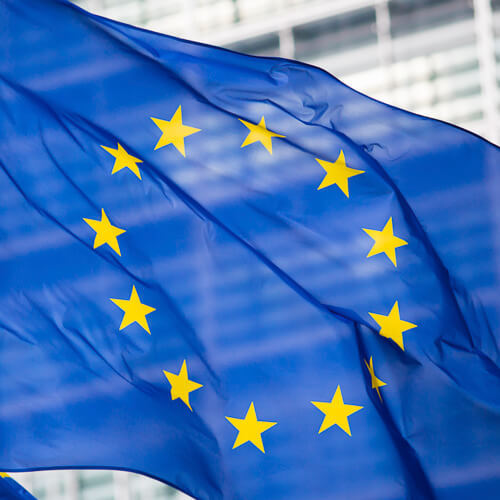Deal or no deal: The new Digital Services Act is set to come into force in 2024, after the EC announced that it had finally reached political agreement.

The European Commission (EC) has taken a major step forward in its efforts to curb the powers of some of the world's biggest digital service providers and make them more responsible for dealing with illegal content and algorithms on their platforms – or face some pretty hefty fines.
Over the weekend, the EC announced that it had finally reached political agreement on its flagship Digital Services Act (DSA).
That means the European Parliament and European Union member states have now approved the rules contained in the DSA, which was first unveiled in December 2020 and sets new standards "for the accountability of online platforms regarding illegal and harmful content."
Figure 1:  Under the DSA, large online platforms face fines up to 6% of their global turnover for violating the rules.
Under the DSA, large online platforms face fines up to 6% of their global turnover for violating the rules.
(Source: Andrey Kuzmin/Alamy Stock Photo)
The DSA, which is expected to enter into force in 2024, is one of the centerpieces of the European digital strategy together with the Digital Markets Act (DMA). Political agreement on the DMA – which focuses more on ensuring that these platforms behave in a fair way online – was reached in March this year.
Under the DSA, large online platforms face fines up to 6% of their global turnover for violating the rules. Repeated "serious breaches" could see the EC impose a ban on them from operating in the European Union single market.
While no names were mentioned, the clear targets are the likes of Amazon, Apple, Meta's Facebook and Alphabet's Google.
EC executive VP Margrethe Vestager has been driving efforts within the EU to rein in these tech giants.
In a statement, she said platforms "should be transparent about their content moderation decisions, prevent dangerous disinformation from going viral and avoid unsafe products being offered on marketplaces. With today's agreement we ensure that platforms are held accountable for the risks their services can pose to society and citizens."
A Reuters report nevertheless indicated that compromises had to be made to ensure the legislation could be approved. According to the news agency, Martin Schirdewan, a member of the European Parliament (MEP), described the decision to include an exemption for small and medium-sized companies as a "mistake."
"Due to the large number of companies that fall under this definition in the digital sector, the exception is like a loophole," Schirdewan was quoted as saying.
Want to know more? Sign up to get our dedicated newsletters direct to your inbox.
Here, Schirdewan could be referring to the fact that micro and small enterprises are exempted from a series of obligations, such as the traceability of traders, notification of criminal offenses, transparency requirements, a system for handling complaints and out-of-court dispute settlement. As explained by the EURACTIV news service, this exemption extends for one year to companies that have grown to become medium-sized.
Legal firm Bird&Bird also noted in February that the DSA text proposes an exemption for micro, small and medium-sized enterprises from certain DSA obligations. It said SMEs are deemed to be enterprises that employ fewer than 250 persons with an annual turnover not exceeding €50 million (US$53.9 million) and/or an annual balance sheet total not exceeding €43 million ($46.4 million).
Related posts:
— Anne Morris, contributing editor, special to Light Reading
Read more about:
EuropeAbout the Author(s)
You May Also Like











